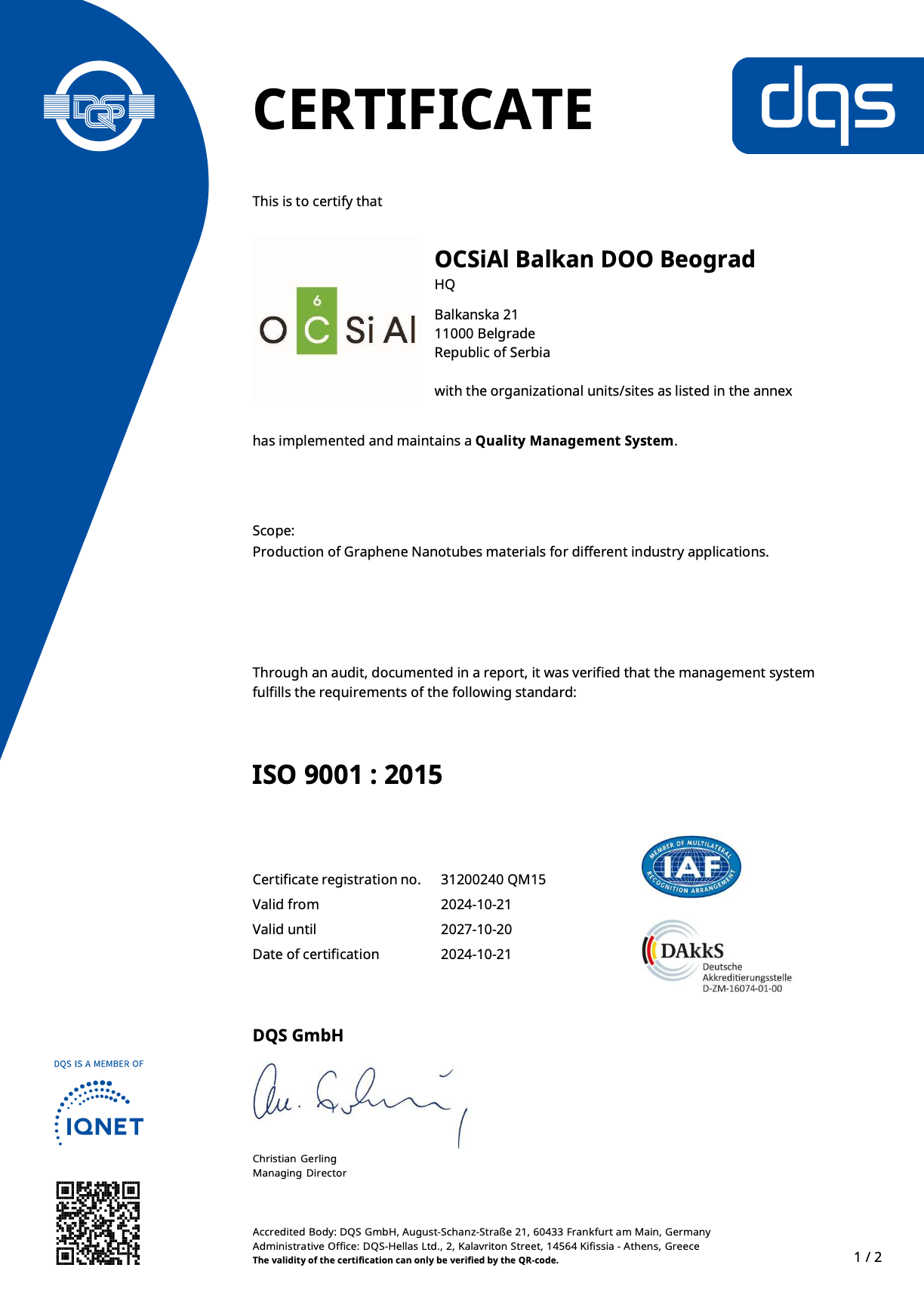- OCSiAl has received ISO 9001:2015 certification confirming the company’s commitment to quality and reliability of its TUBALL™ products for the global industry.
- The European facility’s production processes have been approved by several Tier 1 global automotive producers.
- The facility will produce high quality graphene nanotubes produced on an industrial scale to enable the transition to a cleaner and greener world.
The ISO 9001:2015 certification of OCSiAl’s European production facility affirms the company’s dedication to maintaining a quality management system for producing graphene nanotube materials across various industries.
Receiving this certification is a critical milestone ahead of the official opening of OCSiAl’s cutting-edge graphene nanotube production facility in Serbia. It recognizes the company’s rigorous efforts and substantial investments in establishing a robust system meeting the highest benchmarks for standardization, quality assurance, and operational consistency.
“As a global company serving over 1,500 customers and partnering with more than 25 distributors and OEMs, we are committed to maintaining the highest standards across various industries. Our Serbia facility has already successfully passed VDA audits conducted by top European and Japanese automotive battery manufacturers. These achievements confirm the consistent quality and reliability of our TUBALL™ products and the great people behind them,” said Afonso Solano, Sales and Marketing Director for EMEIA.
Graphene nanotubes, also known as single wall carbon nanotubes, are versatile conductive and reinforcing agents. They are used in various materials, including electrochemical systems, thermoplastics, thermosets, and elastomers. End products used in the automotive, aerospace, construction, electronics, oil and gas, and textiles industries benefit from graphene nanotubes. They gain improved functionality, performance, and durability, which adds significant value and enhances sustainability.
Graphene nanotubes play a key role in achieving Net Zero by enabling more efficient, longer-lasting materials. In electric vehicles, they can reduce emissions by up to 62 million tonnes of CO2-equivalent. Integrating nanotubes into batteries and tires cuts life cycle emissions by up to 10%. In batteries, nanotubes boost cathode and anode density by 40%, allowing for 30% smaller battery packs while maintaining performance. In tires, they lower rolling resistance by up to 12% by improving conductivity and elasticity.
OCSiAl plans to expand its certifications, with the Serbia facility set to pursue ISO 14001 and ISO 45001 certifications, as well as IATF 16949, further strengthening its global quality management framework for graphene nanotube dispersions and concentrates.

